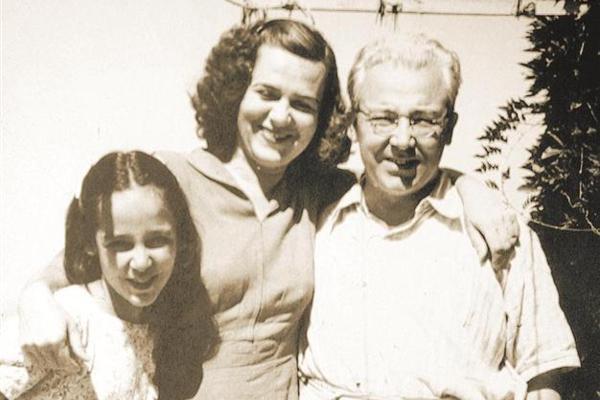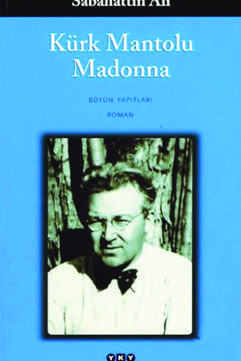Slain Turkish writer’s book brought back to life
ISTANBUL - Anadolu Agency


Sabahattin Ali poses with his wife Aliye Ali and daughter Filiz Ali.
A work by one of modern Turkish literature’s most important writers, Sabahattin Ali, will be translated into English for the first time.The prominent author’s 1943 book, “Kürk Mantolu Madonna” (The Fur-Coated Madonna) will be published in English at the beginning of 2016, more than 70 years after its debut in Turkish.
A deal has been struck between Turkish copyright agency ONK and publishers Penguin U.K. for the book.
A left-wing poet, writer and journalist, Ali was born in 1907. A critic of the then-government, he was murdered in 1948 by an unknown assailant in mysterious circumstances. Rumors flourished later that his killer was a member of the national security service.
His revived work, “The Fur-Coated Madonna,” centers on a post-World War I love story between a Turkish student and a German singer in Berlin.
“Kürk Mantolu Madonna” has already been published in German by Dorlemann and has seen four print editions in Russian, Croatian, Arabic and Albanian.


“The book’s latest success in Turkey was an important detail for them [Penguin U.K.],” said Güleç, referring to the book’s renewed popularity among young Turkish readers.
One million copies since 1998
According to the book’s publishing rights owner in Turkey, YKY Publishing, the company has published almost 1 million copies of the book since 1998.
“Its profound historical and political content, as well as being a romance novel, easily grasps young readers,” Güleç said.
Güleç did not speculate as to who might translate the work.
Ali’s work will also be published in Spanish, Italian, Dutch and Georgian, according to ONK.
Last year, Penguin translated prominent Turkish writer Ahmet Hamdi Tanpınar’s 1962 work, “The Time Regulation Institute,” into English for the first time, with publishers calling it “a literary discovery.”
SABAHATTİN ALİ
Sabahattin Ali was born in 1907 in the township of Eğridere (now Ardino in southern Bulgaria) in the Ottoman Empire. He graduated from the School of Education in Istanbul in 1926.
While he was serving as a German language teacher in Konya, he was arrested for a poem criticizing Atatürk’s policies and accused of defaming two other journalists. After serving his sentence for several months in Konya and later at the Sinop Fortress Prison, he was released in 1933 in an amnesty marking the 10th anniversary of the declaration of the Republic of Turkey.
Upon his release from prison, he suffered financial troubles and his application for a passport was denied. He was killed at the Bulgarian border, around April 1 or 2, 1948, and his body found on June 16, 1948.
It is believed that he was killed by Ali Ertekin, a smuggler with connections to the National Intelligence Organization (MİT) who had been paid to help him pass the border. Another hypothesis is Ertekin handed Ali over to the MİT for interrogations during which Ali was killed. In any case, it is believed Ali was killed because of his political opinions.
Because his books have been read in Bulgarian schools since the 1950s, Ali is a well-known author in Bulgaria. Ali’s 100th birth anniversary was celebrated in Ardino on March 31, 2007.
